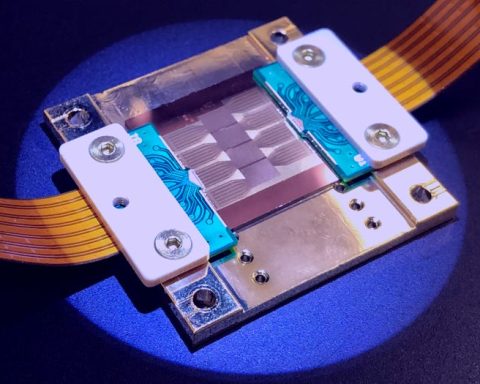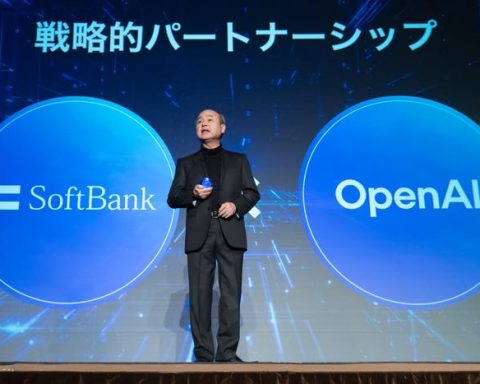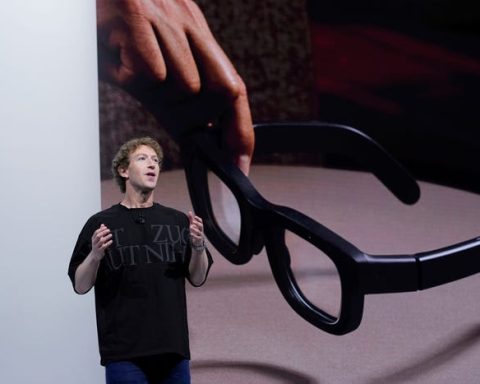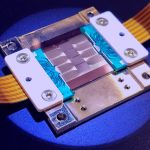Central Computer Processor: Digital Technology and Innovations
Since the development of the electronic calculator in the 1960s, the field of computing has seen tremendous breakthroughs. The last several years in information processing have been particularly revolutionary, turning science fiction dreams into reality. Our enabling devices have grown smaller and more versatile, and classical computing has become incredibly faster and more powerful. We are now entering a new era known as quantum computing, a paradigm distinct from classical computing. This leap is anticipated to accelerate advancements in artificial intelligence and data analytics, allowing us to tackle some of humanity’s most difficult challenges.
Quantum computing is intricately linked to the mysterious realm of subatomic physics, relying on states of uncertainty at the atomic level for computation. It utilizes the fundamental concept of quantum physics known as “superposition,” where an entity can exist in multiple states simultaneously. According to Gartner, quantum computing is defined as “the use of atomic quantum states to effect computation.” The core unit of quantum computing is the qubit (quantum bit), which can represent all possible states at once. Quantum entanglement allows information in one qubit to influence another, even when separated physically. In essence, quantum computers leverage these quantum bits for digital communications, moving beyond traditional binary bits of ones and zeros, as atoms can occupy both 0 and 1 states simultaneously.
Recent Quantum Computing Advancements
Recent scientific breakthroughs in quantum research have set the stage for significantly faster and more accurate computing, transforming once-imagined concepts into practical realities. Notable advancements include:
1. Wireless Quantum Algorithm Transmission: Researchers at the University of Oxford successfully achieved the first wireless transmission of a quantum algorithm between two distinct processors. By combining the unique attributes of the two cores, they formed a powerful computer capable of solving problems independently.
2. Enhanced Feasibility and Scaling: Quantum computing is now increasingly practical thanks to advancements that simplify construction and improve scalability. The two primary methods of quantum computing are gate models and quantum annealing, with recent developments making viable solutions available.
3. Microsoft’s Majorana 1 Processor: Microsoft has accelerated its timeline for large-scale quantum computing. The new Majorana 1 processor uses paired particles, allowing synchronous movement of many electrons, paving the way for rapid scaling of qubits for practical applications.
4. Google’s Willow Chip: Google unveiled Willow, its latest quantum chip with enhancements in error-correction, increasing reliability and using more qubits for scalability. The newly developed chip can perform calculations in mere minutes that would take current supercomputers, such as the Frontier supercomputer in Tennessee, 10 septillion years.
5. Intel’s Silicon-Based Quantum Processors: Intel is working on scalable silicon-based quantum processors, focusing on mass production capabilities. Their approach emphasizes high-volume testing, reproducibility, and qubit density, using silicon spin qubits that are smaller and denser compared to other technologies.
6. IBM Quantum System Two: IBM’s advancements in modular quantum computing technology have made it easier to scale quantum capabilities. The latest 156-qubit quantum chip can run 50 times faster than its predecessor, enabling practical scientific research.
7. D-Wave’s Advantage2 Processor: D-Wave has successfully benchmarked its new 4,400+ qubit Advantage2 processor, which significantly improves performance in optimization and artificial intelligence applications.
8. Quantinuum’s Niche in Trapped-Ion Technology: Quantinuum launched the first trapped-ion 56-qubit quantum computer, achieving milestone metrics for fault tolerance. This advancement is crucial for the future of quantum algorithms in financial and industrial applications.
Quantum Breakthroughs by Smaller Companies
Quantum Computing Inc. is pioneering full-stack quantum solutions designed to enhance performance in analytics and cybersecurity, focusing on quantum photonic computing that operates at room temperature.
Rigetti Computing offers cloud access to quantum systems through its “Forest” platform, allowing traditional software to leverage quantum capabilities.
IonQ specializes in trapped ion technology, producing stable, ionized atoms for quantum computation.
The Future Of Quantum Technologies
In 2022, I discussed readiness for the future of quantum technology at the “Commercialising Quantum” conference. Here, I emphasized the need for investment in quantum capabilities to address both national security and economic development.
With its unprecedented processing speed, quantum computing is expected to help solve some of civilization’s biggest challenges. Consulting firm McKinsey & Company predicts that quantum technologies could create an economic value of up to $2 trillion by 2035.
Quantum measuring and sensing has already infiltrated industries, enhancing navigational devices and MRI technologies. These quantum sensors can detect minute changes in various physical parameters using minimal resources.
Quantum technology will significantly impact numerous scientific fields, including biology, chemistry, physics, and mathematics, ultimately transforming various industries.













